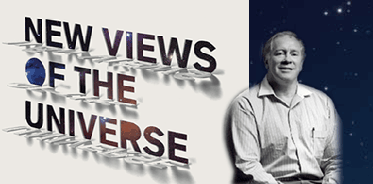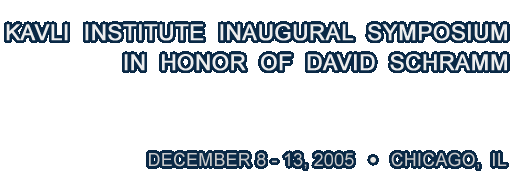|
|
|
New Views of the Universe: Extra Dimensions, Dark Energy and Cosmic Adventures
7-9 p.m. Monday, December 12, at the Harris Theater in Chicago's Millennium Park, 205 E. Randolph.
|
| |
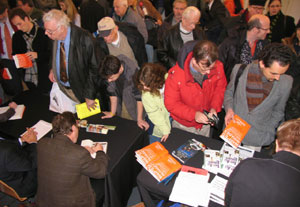 The event was free and open to the public.
The event was free and open to the public.
Four of world's leading cosmologists and National Public Radio's Ira Flatow debated some of the most exciting topics in cosmology and all of science:
- What happened in the earliest moments after the Big Bang?
- What is the nature of the mysterious Dark Energy that is speeding up the expansion of
the universe?
- Are there Extra Dimensions beyond the three we know about?
- Do Parallel Universes or Multiverses exist?
The debate was followed by book signings by the panelist authors.
For more information contact Dragan Huterer (E-mail: dhuterer kicp.uchicago.edu). kicp.uchicago.edu).
|
 | Chicago Public Radio |
|
|
| |
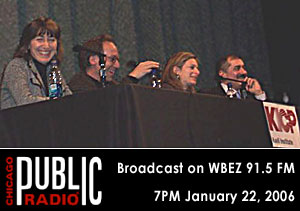 Extra Dimensions, Dark Energy and Cosmic Adventures Public Cosmology Panel was recorded and was broadcast on Chicago Public Radio WBEZ, 91.5 Sunday January 22, 2006 7:00PM (CST). Extra Dimensions, Dark Energy and Cosmic Adventures Public Cosmology Panel was recorded and was broadcast on Chicago Public Radio WBEZ, 91.5 Sunday January 22, 2006 7:00PM (CST).
Listen on the web at WBEZ.
Instructions for Listening to Web Broadcasts:
1) RealAudio software needs to be installed on your computer;
2) If needed, Download RealPlayer for FREE at http://www.real.com - select Mac or PC version and follow RealAudio Instructions;
3) Go here and Download the audio file "sp-universe_20060122.ram";
4) Click on the downloaded ram audio file (it may be necessary to point your machine to the RealPlayer application);
5) Listen.
|
| |
 | Panelists |
|
|
|
 | Wendy Freedman |
|
|
| |
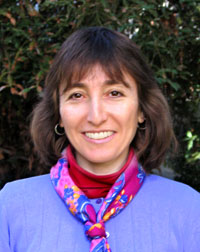 Freedman is the Crawford H. Greenewalt chair and director of the Carnegie Observatories in Pasadena, California. Her research interests encompass the cosmic distance scale, extragalactic astronomy, stellar populations of galaxies, and cosmology. She led the team that used the Hubble Space Telescope in determining the expansion rate of the universe. This expansion rate had been poorly known for many years until Freedman, along with colleagues, measured it with unprecedented precision in 2001.
Freedman is the Crawford H. Greenewalt chair and director of the Carnegie Observatories in Pasadena, California. Her research interests encompass the cosmic distance scale, extragalactic astronomy, stellar populations of galaxies, and cosmology. She led the team that used the Hubble Space Telescope in determining the expansion rate of the universe. This expansion rate had been poorly known for many years until Freedman, along with colleagues, measured it with unprecedented precision in 2001.
Freedman now is leading a project for the next big telescope, called the Giant Magellan Telescope. She also is using supernovae (exploding stars) to learn more about dark energy. Her honors include membership in the National Academy of Sciences, American Academy of Arts and Sciences, and awards from the American Philosophical Society and the Cosmos Club.
|
| |
 | Edward (Rocky) Kolb |
|
|
| |
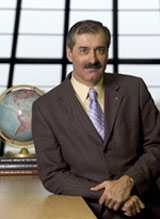 Kolb is director of the Particle Astrophysics Center at Fermilab and a Professor in Astronomy & Astrophysics at the University of Chicago. The author of more than 200 scientific papers, he applies elementary particle physics to the study of the very early universe in his research.
Kolb is director of the Particle Astrophysics Center at Fermilab and a Professor in Astronomy & Astrophysics at the University of Chicago. The author of more than 200 scientific papers, he applies elementary particle physics to the study of the very early universe in his research.
Kolb's book for the general public, Blind Watchers of the Sky, received the 1996 Eugene Emme Astronautical Literature Award. He participates in Fermilab's Saturday Morning Physics Program for high school students and has lectured at many venues around the world, including Chicago's Adler Planetarium and Astronomy Museum and the Royal Society of London. He also has appeared in several television productions, as well as in the OMNIMAX/IMAX film The Cosmic Voyage.
|
| |
 | Lawrence Krauss |
|
|
| |
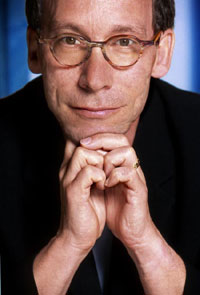 Krauss is the Ambrose Swasey Professor of Physics, and director of the Center for Education and Research in Cosmology and Astrophysics at Case Western Reserve University. He is an internationally known cosmologist, who has made important contributions in such areas as dark matter, big bang nucleosynthesis, general relativity, dark energy, and black holes. He is the author of seven popular books, including the international bestseller The Physics of Star Trek. His latest book, published in October 2005, is Hiding in the Mirror: The Mysterious Allure of Extra Dimensions from Plato to String Theory and Beyond.
Krauss is the Ambrose Swasey Professor of Physics, and director of the Center for Education and Research in Cosmology and Astrophysics at Case Western Reserve University. He is an internationally known cosmologist, who has made important contributions in such areas as dark matter, big bang nucleosynthesis, general relativity, dark energy, and black holes. He is the author of seven popular books, including the international bestseller The Physics of Star Trek. His latest book, published in October 2005, is Hiding in the Mirror: The Mysterious Allure of Extra Dimensions from Plato to String Theory and Beyond.
Described as a public intellectual by Scientific American, Krauss appears frequently on radio and television. His essays on evolution and intelligent design and other topics have appeared in the New York Times. He has received numerous awards for his research, writing and lecturing, including the Public Understanding of Science Award from the American Association for the Advancement of Science.
|
| |
 | Lisa Randall |
|
|
| |
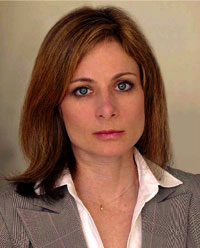 Randall is a Professor of Physics at Harvard University, a member of the American Academy of Arts and Sciences and one of the most frequently cited theoretical physicists of recent years. Randall is frequently interviewed by journalists and has recently published an op-ed article, about science communication, for the New York Times.
Randall is a Professor of Physics at Harvard University, a member of the American Academy of Arts and Sciences and one of the most frequently cited theoretical physicists of recent years. Randall is frequently interviewed by journalists and has recently published an op-ed article, about science communication, for the New York Times.
Her research concerns the fundamental nature of particles and forces and how matter's basic elements relate to the physical properties of the world that we see. She has worked on a variety of ideas regarding what might lie beyond established particle physics and cosmological theories. These ideas include theories of extra dimensions of space, the subject of her new book, Warped Passages: Unraveling the Mysteries of the Universe's Hidden Dimensions.
|
| |
 | Ira Flatow |
|
|
| |
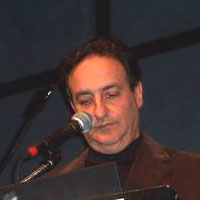 Flatow, the moderator, served as NPR's science correspondent from 1971 to 1986. During that time he covered science from such locales as the Kennedy Space Center, Three Mile Island, Antarctica and the South Pole.
Flatow, the moderator, served as NPR's science correspondent from 1971 to 1986. During that time he covered science from such locales as the Kennedy Space Center, Three Mile Island, Antarctica and the South Pole.
Flatow is the author of two books, They All Laughed - From Light Bulbs to Lasers: The Fascinating Stories Behind the Great Inventions That Have Changed our Lives, and Rainbows, Curve Balls and Other Wonders of the Natural World Explained. He also is host of the four-part PBS series Big Ideas, produced by WNET in New York. His honors include the American Association for the Advancement of Science Journalism Award and the Carl Sagan Award.
|
| |
|
|
|
